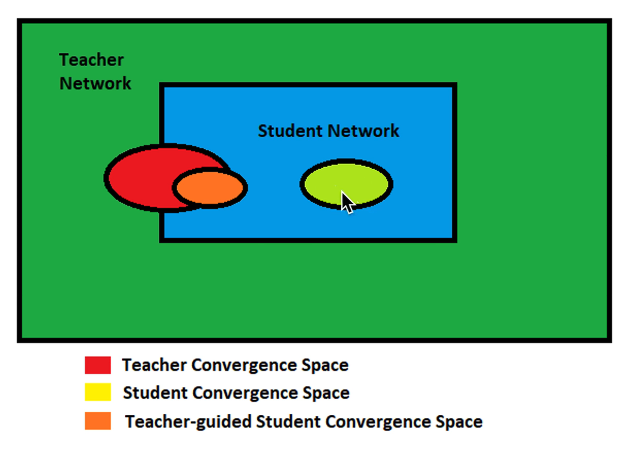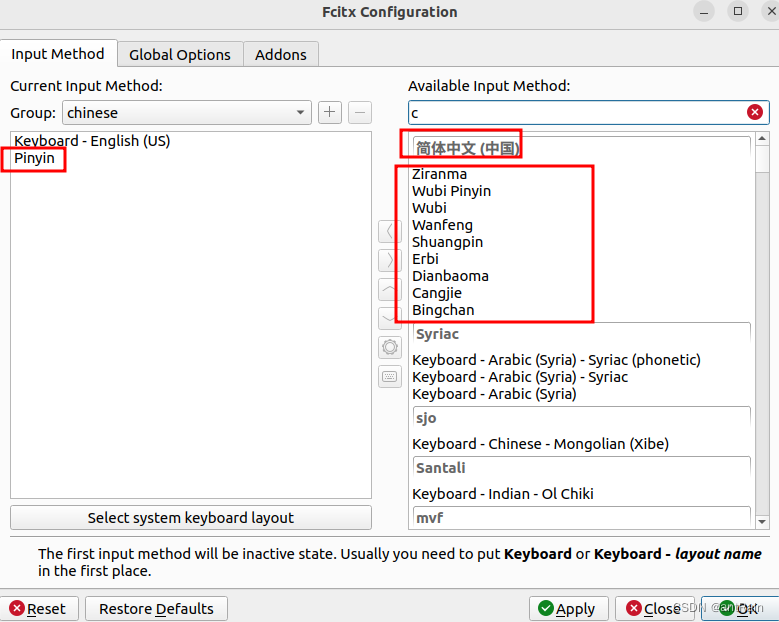
一、今日单词:
1.anxiety
中文意思是"焦虑"或"忧虑"。它通常用来描述一种内心的不安、紧张或担忧感。"anxiety"可以指个人的情绪状态,也可以指一种心理疾病或临床诊断。
以下是一些关于"anxiety"的用法和例句:
- I have been experiencing a lot of anxiety lately.(我最近一直感到很焦虑。)
- The upcoming exam is causing me a great deal of anxiety.(即将来临的考试让我非常担心。)
- He suffers from social anxiety and finds it difficult to interact with others.(他患有社交焦虑,与他人交往困难。)
读音:[æŋˈzaɪəti](英式英语)
固定搭配:
- anxiety disorder:焦虑症
- anxiety attack:焦虑发作
- anxiety symptoms:焦虑症状
记忆方法:
- 将单词"anxiety"与焦虑的感觉联系起来,想象自己处于一种紧张、不安的心理状态。
- 可以将该词与类似的词汇进行比较,如"stress"(压力)、"worry"(担心),以加深对其意义的理解。
词源:该词源自拉丁词"anxietas",意为"不安"或"不安宁"。
同义词:worry, concern, unease
反义词:calm, tranquility
衍生词:anxious(形容词,焦虑的)、anxiously(副词,焦虑地)、anxiousness(名词,焦虑)
形近词:anxious(形容词,焦虑的)
2.delay
意思:
1. 延迟,推迟
2. 耽搁,耽误
3. 拖延,迟疑
用法和例句:
1. 延迟/推迟:The flight was delayed due to bad weather. (航班因天气恶劣而延误)
2. 耽搁/耽误:Don't delay any longer; we need to leave now. (不要再耽搁了,我们需要现在出发)
3. 拖延:He always delays doing his homework until the last minute. (他总是把作业拖到最后一刻才开始做)
读音:
/dɪˈleɪ/
固定搭配:
- without delay: 立即,马上
- cause a delay: 引起延迟
- experience a delay: 遭遇延误
- long delay: 长时间延迟
记忆方法:
- 将其与"late"(迟到)相关联,因为"delay"表示事情被推迟或耽搁。
词源:
"delay"一词源于古法语中的"delai",意为"延迟"或"推迟"。
同义词:
postpone, defer, put off, procrastinate
反义词:
advance, expedite
衍生词:
delayed (形容词), delaying (动词现在分词)
形近词:
daily, deadly, readily
3.considerable
"considerable"是一个英语单词,以下是它的各类意思、用法和例句,以及一些相关信息:
意思:
1. 相当大的,可观的
2. 值得考虑的,重要的
用法和例句:
1. 相当大的:She has made considerable progress in her studies. (她在学业上取得了相当大的进步)
2. 值得考虑的:There are considerable risks associated with this investment. (这项投资存在着相当大的风险)
读音:
/kənˈsɪdərəbəl/
固定搭配:
- a considerable amount/number of: 相当数量的
- considerable effort/time/money: 相当大的努力/时间/金钱
- of considerable importance/significance: 相当重要的
记忆方法:
- 将"considerable"与"consider"(考虑)联系起来,意味着需要给予一定的考虑,因为某事具有重要性或相当大的程度。
词源:
"considerable"一词来自拉丁语中的"considerabilis",意为"值得考虑的"。
同义词:
significant, substantial, considerable, sizable, noteworthy
反义词:
insignificant, minor, trivial
衍生词:
considerably (副词)
形近词:
considerate, consideration, consider, considered
4.mainstream
"mainstream"是一个英语单词,以下是它的各类意思、用法和例句,以及一些相关信息:
意思:
1. 主流的,主要的
2. 主流思想,普遍接受的观点或实践
用法和例句:
1. 主流的,主要的:The band's music became more mainstream after their hit single. (该乐队的音乐在他们的热门单曲后变得更主流化)
2. 主流思想:His ideas were considered radical at the time, but now they have become part of the mainstream. (他的观点在当时被认为是激进的,但现在已经成为主流的一部分)
读音:
/ˈmeɪnstriːm/
固定搭配:
- mainstream media: 主流媒体
- mainstream culture: 主流文化
- mainstream society: 主流社会
记忆方法:
- 将"mainstream"分解为"main"(主要的)和"stream"(流),它表示主要的思想或观点在社会中广泛流传。
词源:
"mainstream"一词最早出现于19世纪,最初用于描述水流的主要部分。后来引申为表示主流思想或观点。
同义词:
popular, conventional, prevailing, dominant, accepted
反义词:
alternative, niche, unconventional, fringe
衍生词:
mainstreaming (名词),mainstreamed (形容词)
形近词:
mainstay, maintain, maintainable
5.slide
"slide"是一个英语单词,以下是它的各类意思、用法和例句,以及一些相关信息:
意思:
1. 滑动,滑行
2. 幻灯片,投影片
3. 滑坡,下滑
4. 滑道,滑梯
5. 平稳地移动,悄悄溜走
用法和例句:
1. 滑动,滑行:He slid down the hill on his sled. (他坐着雪橇滑下了山坡)
2. 幻灯片,投影片:The speaker used slides to illustrate her presentation. (演讲者使用幻灯片来说明她的演讲)
3. 滑坡,下滑:The heavy rain caused a mudslide in the mountainous region. (暴雨导致山区发生泥石流)
4. 滑道,滑梯:The children had fun sliding down the playground slide. (孩子们玩得很开心,滑下游乐场的滑梯)
5. 平稳地移动,悄悄溜走:He slid out of the room without anyone noticing. (他悄悄溜走了,没人注意到)
读音:
/slaɪd/
固定搭配:
- water slide: 水滑梯
- slide show: 幻灯片演示
记忆方法:
- 将"slide"联想为滑动的动作,可以想象滑行、滑动或滑梯等场景。
词源:
"slide"一词最早出现于14世纪,源自古英语的"slidan",意为"滑动"。
同义词:
glide, slip, slither, skid
反义词:
climb, ascend, rise
衍生词:
slider (名词),sliding (形容词)
形近词:
glide, slither, slim, slight
6.format
"format"是一个英语单词,以下是它的各类意思、用法和例句,以及一些相关信息:
意思:
1. 格式,格式化
2. 安排,布局
3. 形式,形态
4. 规范,标准
用法和例句:
1. 格式,格式化:Please make sure the document is in the correct format before submitting it. (请确保提交文档时格式正确)
2. 安排,布局:They will format the conference program to include all the necessary details. (他们将安排会议日程,包括所有必要的细节)
3. 形式,形态:The artist experimented with different formats for expressing her ideas. (艺术家尝试了不同的形式来表达她的想法)
4. 规范,标准:The company has strict formatting guidelines for writing reports. (公司对撰写报告有严格的格式规范)
读音:
/ˈfɔːrmat/
固定搭配:
- file format: 文件格式
- data format: 数据格式
- text formatting: 文本格式化
记忆方法:
- 将"format"联想为整理或安排信息的方式,可以想象将文档按照特定的格式整理,或者安排事物的形式和布局。
词源:
"format"一词最早出现于19世纪,源自法语的"format",意为"外形,形式"。
同义词:
layout, arrangement, structure
反义词:
disorder, disorganization, chaos
衍生词:
formatted (过去分词/形容词),formatter (名词)
形近词:
reformat, deform, inform, perform
7.echo
"echo"是一个英语单词,以下是它的各类意思、用法和例句,以及一些相关信息:
意思:
1. 回声,回音
2. 回响,共鸣
3. 发声,发出声音
4. 重复,复述
用法和例句:
1. 回声,回音:The sound of her footsteps created an eerie echo in the empty hallway. (她脚步声在空荡的走廊中产生了一种可怕的回声)
2. 回响,共鸣:His powerful speech had a lasting echo in the minds of the audience. (他有力的演讲在观众的心中产生了持久的回响)
3. 发声,发出声音:The singer's voice echoed throughout the concert hall. (歌手的声音在音乐厅中回荡)
4. 重复,复述:She echoed her teacher's words to the other students. (她把老师的话重复给其他学生听)
读音:
/ˈɛkoʊ/
固定搭配:
- echo chamber: 回音室,指一种信息过滤的现象,人们只接收与自己观点相符的信息而忽视其他观点
- echo effect: 回声效果,指通过音频处理使声音产生回响的效果
- echo location: 回声定位,指通过声波的反射来确定物体的位置
记忆方法:
- 将"echo"联想为声音的回响或重复,可以想象在山谷中喊出声音后回荡的回声,或者某人重复他人的话语。
词源:
"echo"一词最早出现于14世纪,源自古希腊的"ēkhō",意为"回声"。
同义词:
reverberation, resound, reflect, repeat
反义词:
silence, quiet, mute
衍生词:
echoing (现在分词/形容词),echoic (形容词),echoless (形容词)
形近词:
echelon, eccentric, epoch, economics
8.volum
"volume"是一个英语单词,以下是它的各类意思、用法和例句,以及一些相关信息:
意思:
1. 音量,声音的强度或大小
2. 体积,物体所占的空间
3. 书卷,一本书中的部分
4. 量,数量
用法和例句:
1. 音量:Please turn down the volume of the music. It's too loud. (请把音乐的音量调小,太大声了)
2. 体积:The size of the box is quite large, but the actual volume it occupies is small. (盒子的尺寸相当大,但它实际占用的空间很小)
3. 书卷:I've read the first volume of the trilogy. (我已经读完了这部三部曲的第一卷)
4. 量,数量:The volume of sales has increased significantly this year. (今年的销售量有显著增长)
读音:
/ˈvɑːljuːm/ (英式英语)
/ˈvɑːljum/ (美式英语)
固定搭配:
- volume control: 音量控制
- volume level: 音量水平
- volume knob: 音量旋钮
记忆方法:
- 将"volume"联想为声音或物体所占的空间,可以想象调节音量时旋转音量旋钮或者想象一本厚厚的书所占据的空间。
词源:
"volume"一词最早出现于14世纪,源自拉丁语的"volumen",意为"卷轴"或"书卷"。
同义词:
loudness, sound level, capacity, size, magnitude
反义词:
quiet, silence, diminishment
衍生词:
voluminous (形容词),volumetric (形容词),volumize (动词),volumetrically (副词)
形近词:
valume, valve, valuable, volunteer
9.assume
"assume"是一个英语单词,以下是它的各类意思、用法和例句,以及一些相关信息:
意思:
1. 假设,假定
2. 承担,担任
3. 呈现,展示出
4. 假装,假扮
用法和例句:
1. 假设,假定:Let's assume that the meeting will start at 9 AM. (假设会议将在上午9点开始)
2. 承担,担任:She has been promoted and will assume the role of manager. (她得到了晋升,将担任经理的角色)
3. 呈现,展示出:The painting assumes a different appearance when viewed from a distance. (当从远处观看时,这幅画呈现出不同的样子)
4. 假装,假扮:He assumed a disguise to avoid being recognized. (他假装换了个样子以免被认出)
读音:
/əˈsuːm/ (英式英语)
/əˈsum/ (美式英语)
固定搭配:
- assume responsibility: 承担责任
- assume control: 掌控,控制
- assume a position: 担任职位
- assume an identity: 假扮身份
记忆方法:
- 将"assume"联想为"假设"或"假定"的意思,想象自己在做出一个假设时会暂时承担这个假设的情况。
词源:
"assume"一词源自拉丁语的"assumere",意为"采取"或"承担"。
同义词:
presume, suppose, guess, conjecture, hypothesize
反义词:
doubt, question, reject, disbelieve
衍生词:
assumption (名词),assumed (形容词),assumer (名词),assuming (形容词)
形近词:
assure, consume, resume, amuse
10.faculty
"faculty"是一个英语单词,以下是它的各类意思、用法和例句,以及一些相关信息:
意思:
1. 能力,才能
2. 教职员工,教员团体
3. (大学中的)学院,系
用法和例句:
1. 能力,才能:He has a remarkable faculty for problem-solving. (他有出色的解决问题的能力)
2. 教职员工,教员团体:The faculty members are organizing a seminar on neuroscience. (教职员工正在组织一个有关神经科学的研讨会)
3. (大学中的)学院,系:She is a professor in the Faculty of Law. (她是法学院的教授)
读音:
/ˈfækəlti/ (英式英语)
/ˈfækəlti/ (美式英语)
固定搭配:
- faculty of arts/science/law: 文学院/理学院/法学院
- faculty member: 教职员工
- faculty meeting: 教职员工会议
记忆方法:
- 将"faculty"联想为"ability"的同义词,表示某人的能力或才能。
- 将"faculty"中的"fac"音节联想为"faculty"与"fact"的发音相似,因此可以理解为教职员工是知识的创造者和传递者。
词源:
"faculty"一词源自拉丁语的"facultas",意为"能力"或"才能"。
同义词:
ability, capacity, skill, talent
反义词:
inability, disability
衍生词:
faculties (名词复数),facultative (形容词),faculty lounge (教职员工休息室)
形近词:
facility, factual, factualize
故事记忆:
当我考虑了这些单词时,我想到了一个关于一位学生的故事。让我们称这位学生为小明。
小明一直感到焦虑和不安,他在学校里经历了很多压力。他总是担心自己的能力是否足够,是否能够胜任学术任务。但是,他决定要克服这种焦虑,因为他知道他具有很大的潜力。
为了应对焦虑,小明决定延迟一些娱乐活动和社交聚会。他意识到如果能够推迟一些消遣,他就可以更专注于学习和提升自己的能力。他有着坚定的决心和毅力。
随着时间的推移,小明的努力得到了回报。他逐渐进入了主流的学术领域,成为学校中备受尊敬的人物。他的能力和才华得到了广泛认可,他成为了教员团体的一员。
作为教员团体的一员,小明积极参与教育活动。他经常参加教职员工会议,与其他教师分享经验和知识。他还加入了文学院的研究小组,与同行一起探索学科的前沿。
小明的努力和能力使他在大学里取得了很高的地位。他成为了法学院的教授,指导着许多优秀的学生。他的教学方法和才能使得学生们在法学领域取得了很大的进步。
最终,小明在大学的学院中建立了良好的声誉。他的努力和能力让他成为了大学中不可或缺的一部分。他通过自己的能力和才华取得了成功,同时也鼓励其他人发挥自己的潜力。
这个故事中的单词包括"anxiety"(焦虑)、"delay"(延迟)、"considerable"(相当大的)、"mainstream"(主流)、"slide"(滑动)、"format"(格式)、"echo"(回声)、"volume"(音量)、"assume"(假设)和"faculty"(教职员工、能力)。
希望这个故事可以帮助你记忆这些单词,并将它们联系到一个有趣的背景故事中。记住,将单词与情境联系起来有助于记忆和理解。
Once upon a time, there was a student named John who was filled with anxiety. He constantly worried about his abilities and whether he would succeed in his academic endeavors. However, he was determined to overcome his anxiety and fulfill his potential.
To tackle his anxiety, John decided to delay certain leisure activities and social gatherings. He realized that by postponing some of his recreational pursuits, he could focus more on studying and enhancing his skills. He was determined and persevered in his efforts.
As time went on, John's hard work began to pay off. He gradually became part of the mainstream academic community and gained respect among his peers. His abilities and talents were widely recognized, and he was welcomed into the faculty.
As a faculty member, John actively engaged in educational activities. He regularly attended faculty meetings, where he shared his experiences and knowledge with other teachers. He also joined a research group in the literature department, exploring the frontiers of the discipline alongside his colleagues.
John's dedication and abilities earned him a prominent position within the university. He became a professor in the law school, guiding many outstanding students. His teaching methods and talents enabled students to make considerable progress in the field of law.
Ultimately, John established a strong reputation within the university's academic community. His hard work and abilities made him an integral part of the institution. Through his own accomplishments, he encouraged others to tap into their own potential.
In this story, the words "anxiety," "delay," "considerable," "mainstream," "slide," "format," "echo," "volume," "assume," and "faculty" were incorporated.
I hope this story helps you in memorizing these words and connects them to an engaging narrative. Remember, associating words with contexts aids in memory retention and comprehension.
二、网课内容

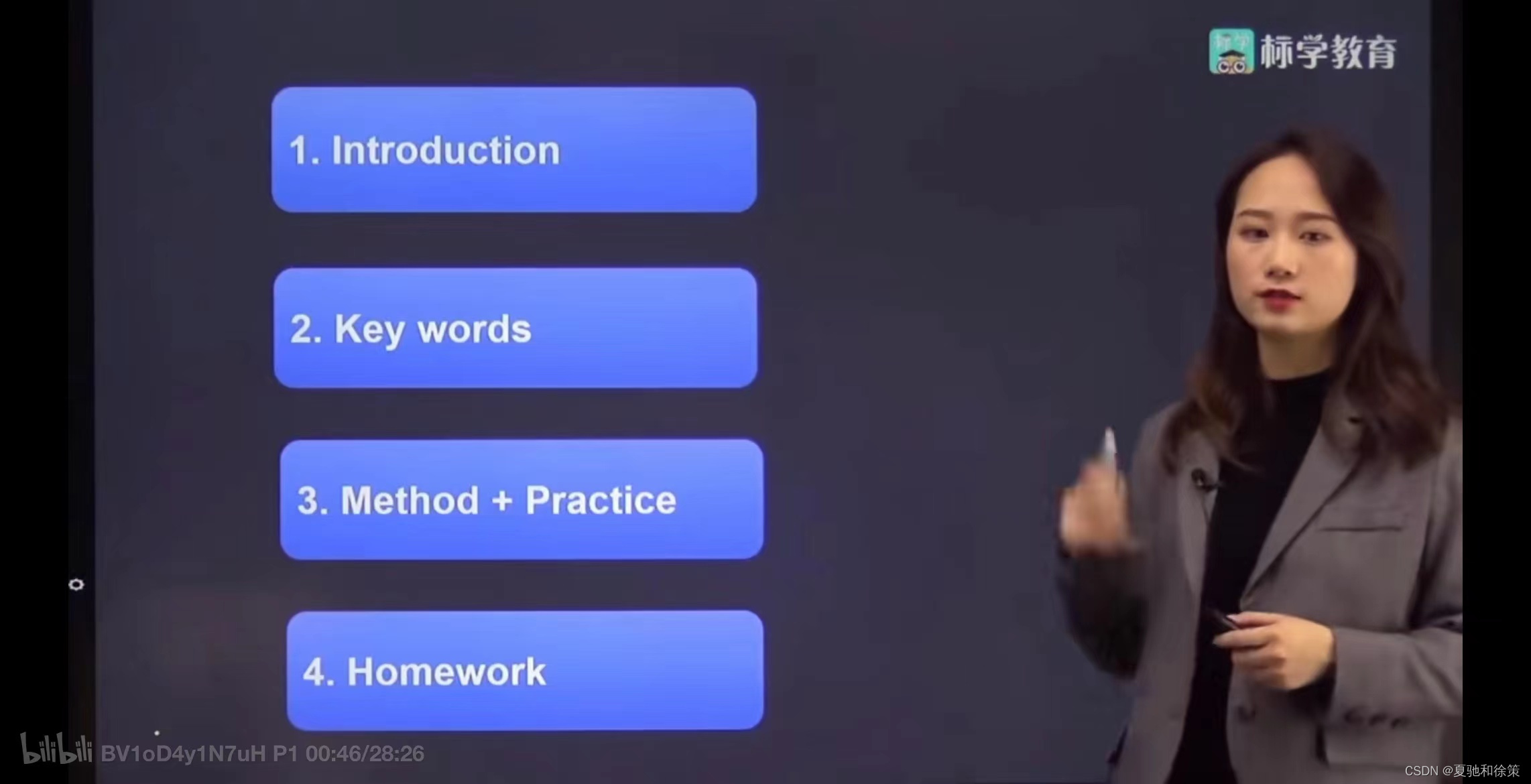

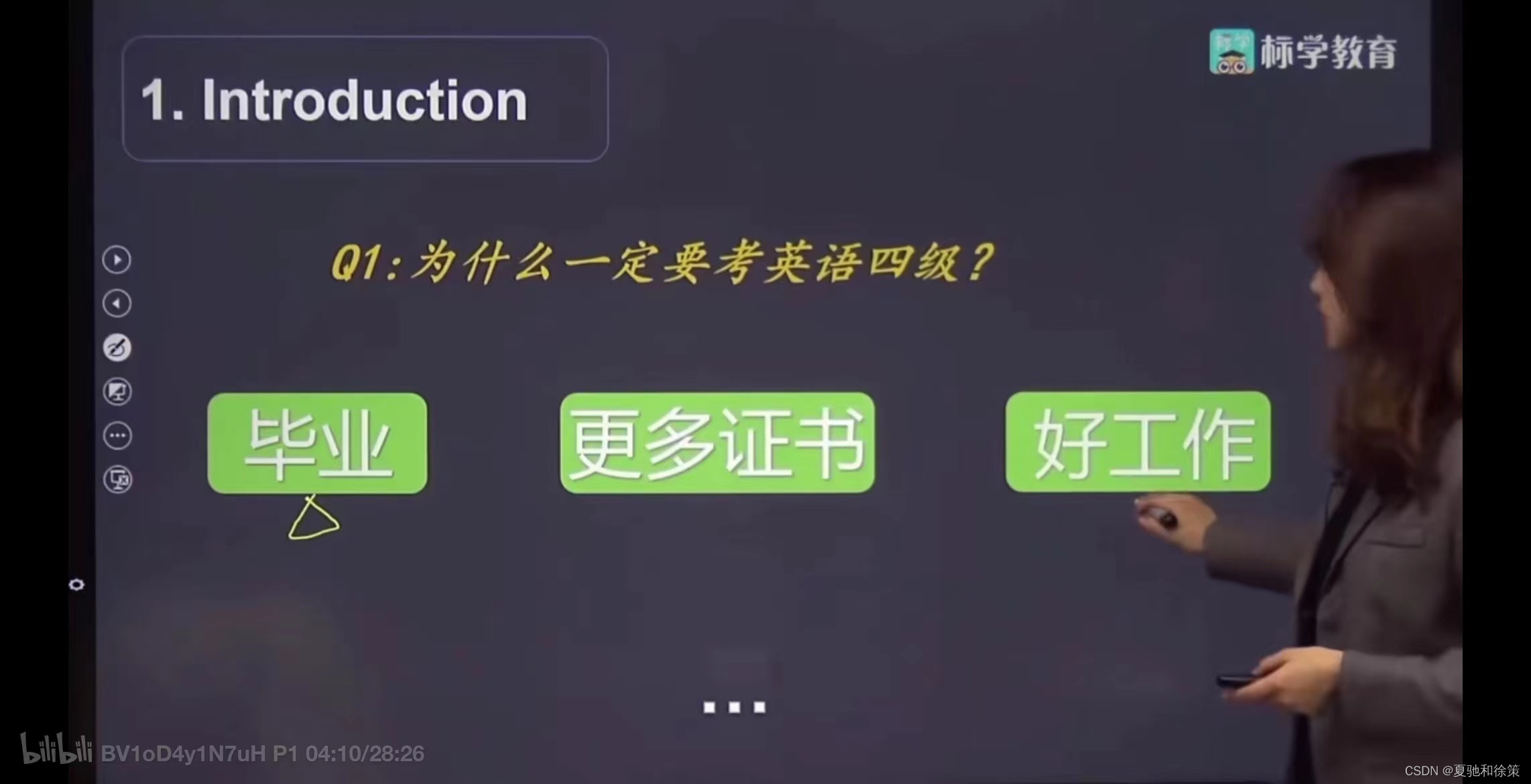
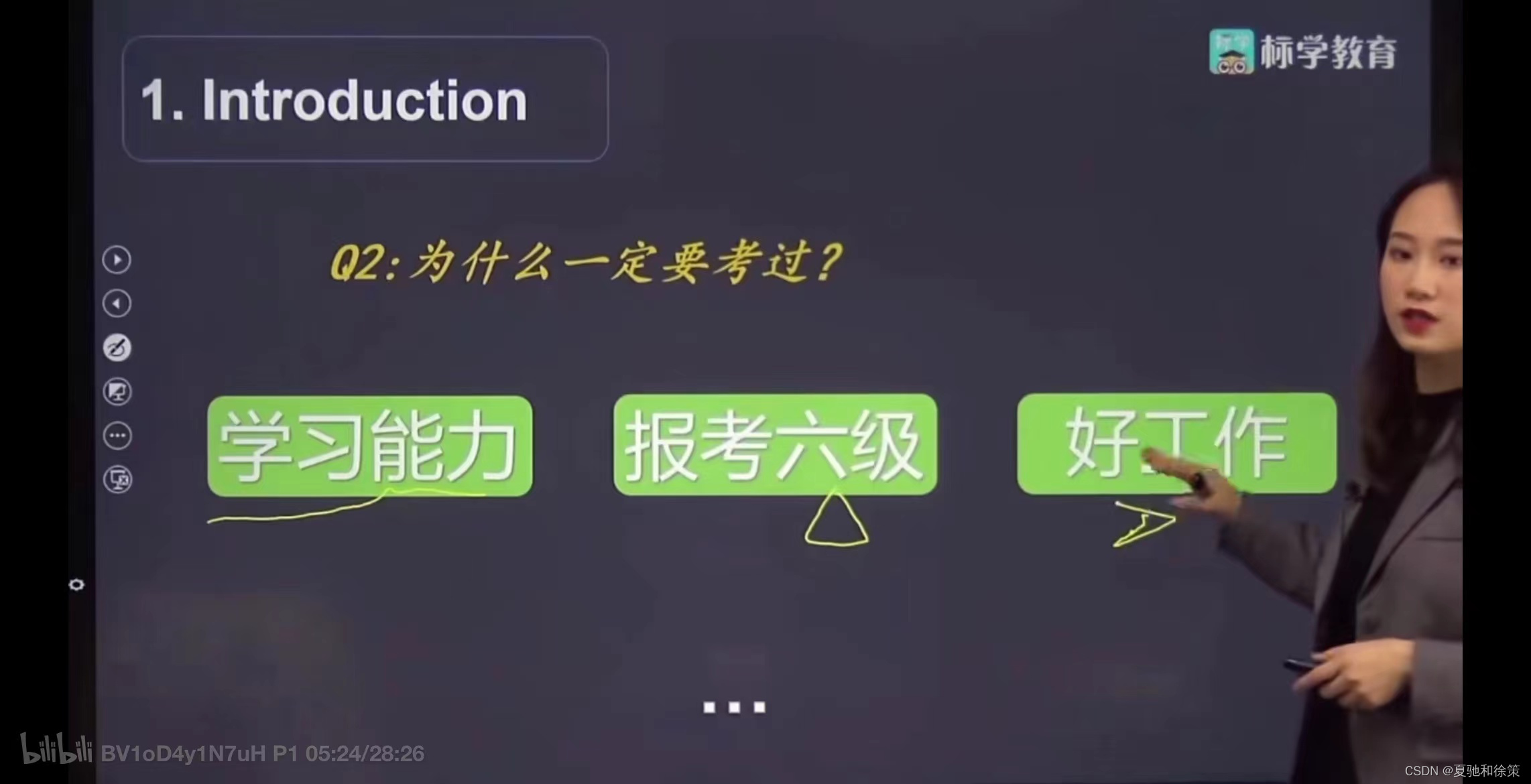
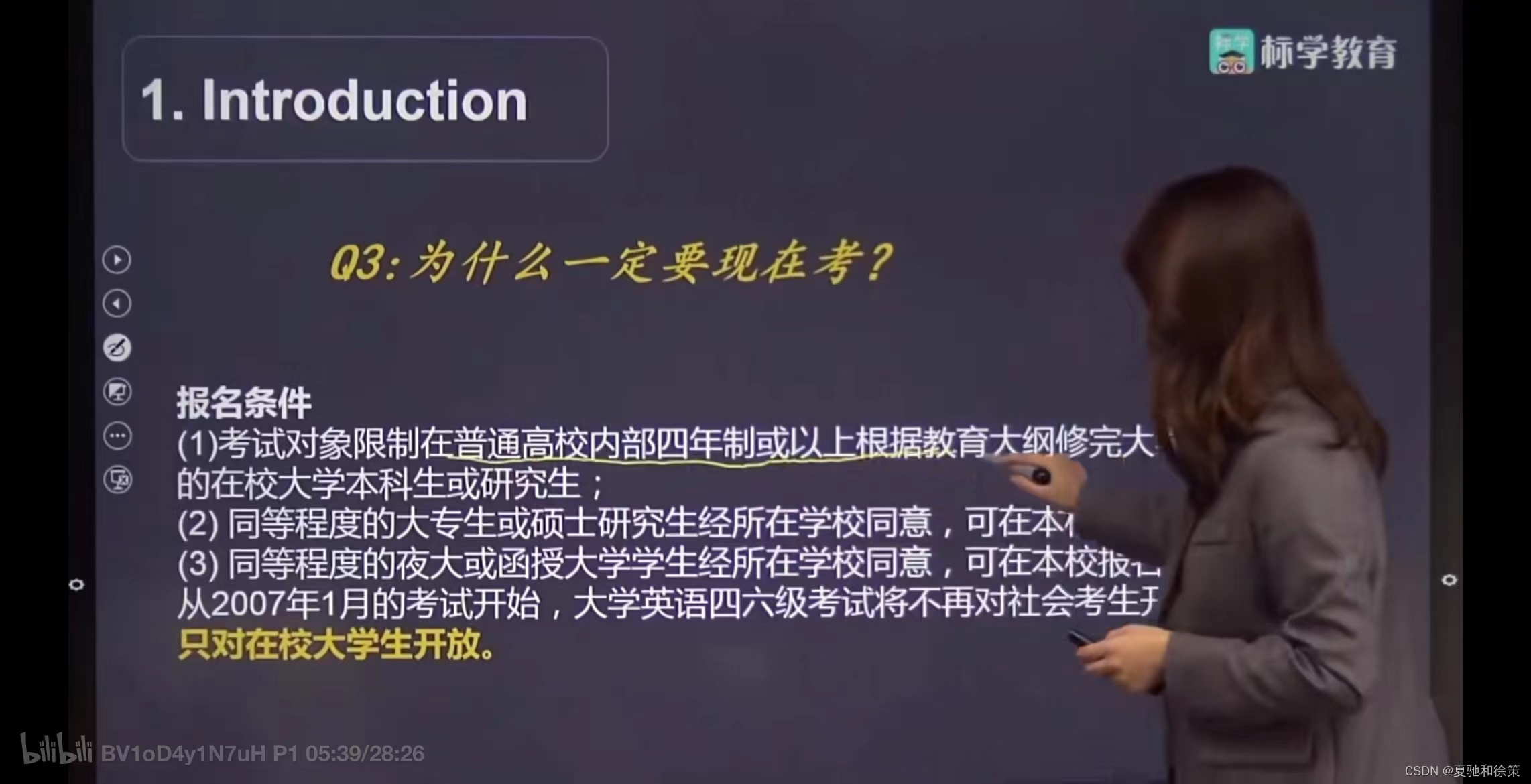
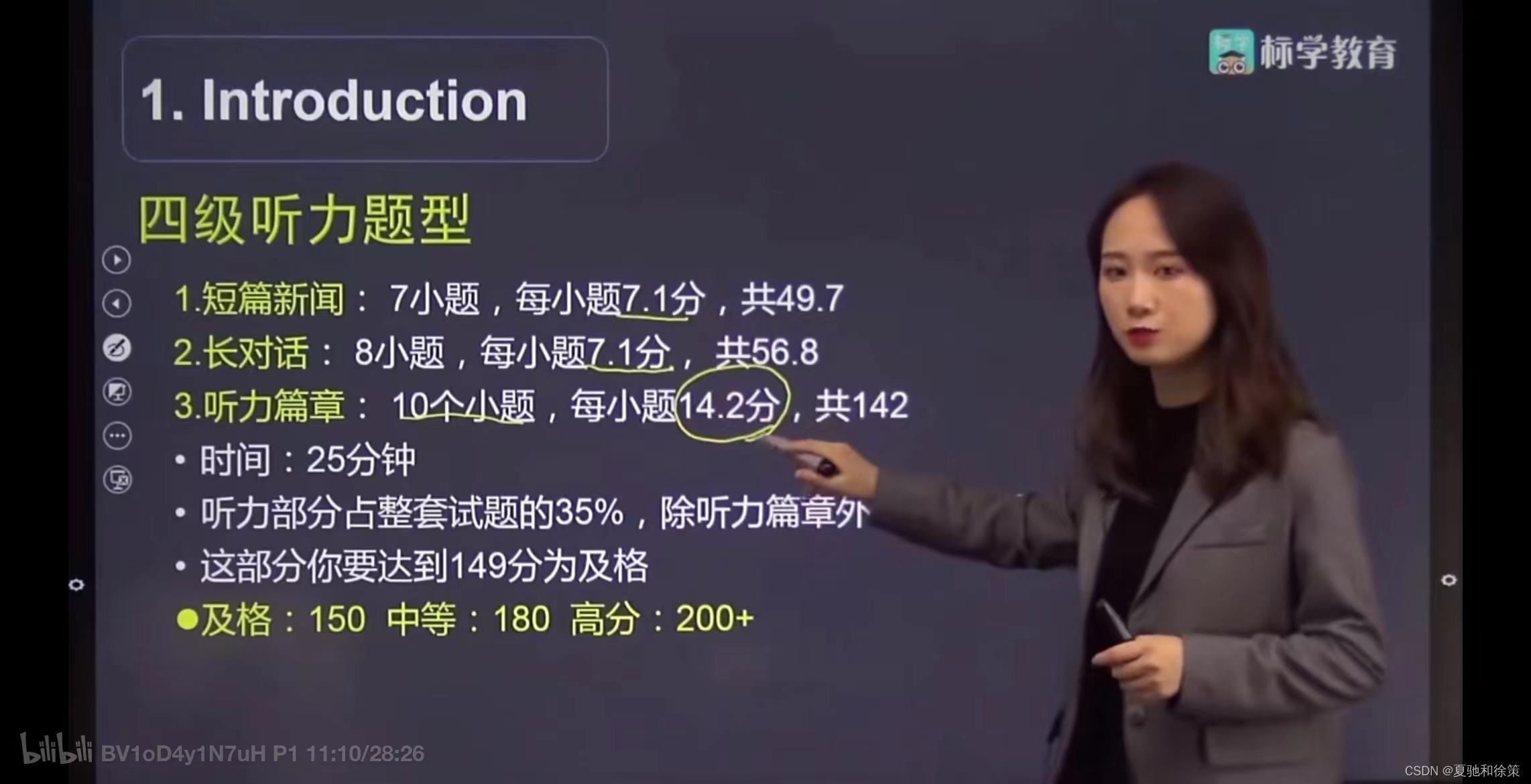
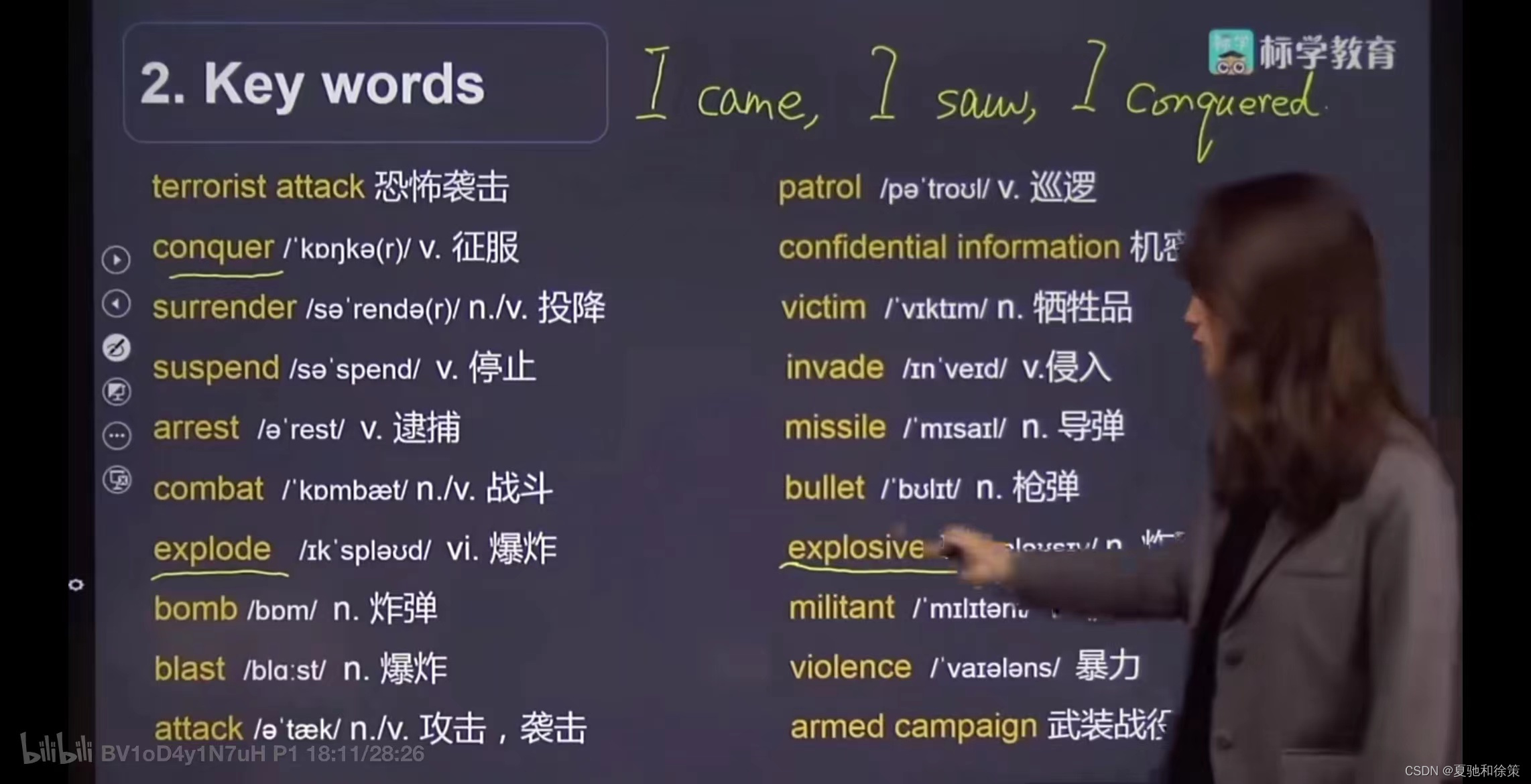




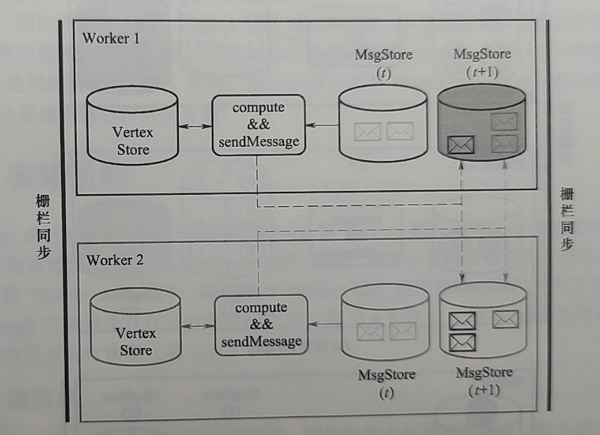


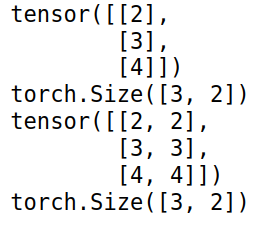






![[数据结构初阶]双链表](https://img-blog.csdnimg.cn/f115329cf6674b9fa9d516a6bc2c7d3c.png)
